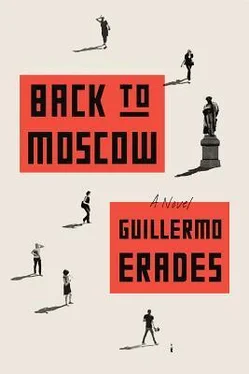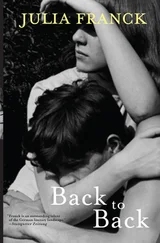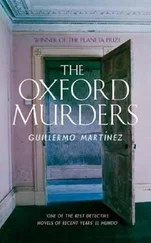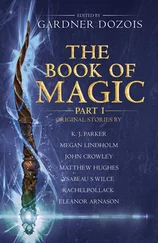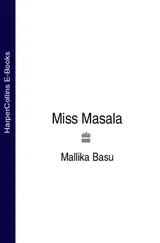Stepanov’s flat is his grandfather’s flat. Stepanov’s grandfather had been important in the Communist party, a proud member of the nomenklatura, Stepanov tells us, but he passed away in the early 1990s, together with the Union of Soviet Socialist Republics. We often toast in his honour because, Stepanov says, his grandfather remains our host. At Stepanov’s place we do vodka shots, play old vinyl records, decide which clubs to visit, talk shit.
To make sure we are not missing out on the best party, Colin makes us spend a great part of the night on the road, moving across the city, following rumours, searching for the finest crowd. It’s an endless journey, from club to club to bar to café, back to a club, exploring the hundreds of establishments that stay open all night, buying drinks, talking to dyevs, collecting phone numbers.
Colin says, in Moscow you don’t hunt, you gather.
The problem comes at the end of the night. Visitors are not allowed into the university residence, so, if it turns out to be a good night and a girl I’ve met in a club wants to come home for a cup of tea, I have to take her to Stepanov’s place, where we’ll spend the rest of the night on his couch, next to the grandfather’s piano, under the strict vigilance of comrade Brezhnev.
Stepanov says, you’re welcome to fuck anyone in my grandfather’s flat.
But it’s not ideal. Next morning I’ll have to wake up early, walk the girl to the ring road, put her in a car before I take the long metro ride to Universitet for my three-hour language class.
Exhausting.
IT WAS KATYA WHO suggested that I should add Moscow to my application form. ‘You’ll increase your chances,’ she said. ‘Nobody wants to go to Russia. People are scared, with all these awful things they show on the news all the time. There’ll be no competition.’
I didn’t particularly care about academic life. But I was about to finish my degree in languages and literature and I didn’t know what to do next. A friend told me that a PhD was nothing more than the usual academic assignment, just with a very long deadline. It sounded like something I could do.
Moscow. Why not. After all, I had taken an interest in Russian books. During my studies I’d read Dostoyevsky, Gogol and even a couple of chapters of War and Peace . Then, for my birthday, Katya had bought me an old English edition of selected short stories by Chekhov — the only book I later took to Moscow — and for a couple of weeks we had read the stories to each other in bed.
As Katya had predicted — and despite my mediocre grades — a few weeks after sending in my application I found myself facing a panel in the literature department of the University of Amsterdam. It was never really explained to me why I wasn’t being considered for other universities which were top of my list — when they had asked me to submit a developed research proposal, I was told it was Russia or nothing.
At the interview I was invited to elucidate how my proposed research topic — the evolution of the female character in Russian literature — would contribute to the West’s understanding of modern Russia. Following Katya’s advice, I’d taken two shots of vodka before the interview — a trick Russians always use to speak in public, she’d told me. I felt confident and eloquent. I will certainly define the research topic further, sir, of course I think there is room for a fresh look at the subject, yes, a twenty-first-century view of Russian literature. I’m planning to expand my sources, indeed, will definitely take into account these latest gender-sensitive theories you mention, madam, I mean professor, I will use them all. Russian language? Da, da, I’m looking forward to learning Russian, certainly. I would be immensely grateful, I said at the end — trying to conclude my interview as solemnly as I could — if I were awarded this prestigious scholarship to study at MGU, the famous Moscow State University.
By the time I was offered the scholarship, another few weeks after the interview, I had no reason to stay in Amsterdam. In fact, I was desperate to get out.
All friendly break-ups are alike; each painful break-up is painful in its own way. Katya certainly made sure of that. At first I was shocked, the entire thing had caught me off guard. The days passed and I saw no improvement in my heart’s condition. I couldn’t understand where the pain was coming from. Had I really cared that much about her? Then, in the middle of this unexplored emotional territory, confused and disoriented as I was, I received The Letter. Dear applicant, we have the pleasure of informing you that, and so on.
It was only later, when I read Nest of the Gentry , that I recognised the dramatic potential of my situation. In Turgenev’s book, Lavretsky, too, finds himself in similar circumstances and ends up fleeing to Russia looking for solace. Of course, now, when I look back, I wouldn’t dare compare my Katya to Varvara Pavlovna. Despite her glamour and beauty, Katya lacked the old-school refinement of Turgenev’s femme fatale.
So it was that, with a few warm clothes, a Russian — English dictionary and my copy of Chekhov, I left Amsterdam for good. Sitting on an Aeroflot plane bound for Sheremetyevo, ready to start my post-Katya life, I found myself for the first time totally surrounded by real Russians. They looked like decent, honest people. I was glad to hear the unsmiling air hostess addressing me in Russian, obviously mistaking me for one of her own. Fish or meat? I’d been studying the language for a few weeks with a book Katya had bought me, but the air hostess’s question — which, granted, she’d posed while holding two trays of warm aeroplane food in her hands — was my first successful encounter with the Russian language in a non-textbook context.
My confidence boosted, I began to look forward to my life in Moscow, my self-imposed exile, where I’d be enjoying, I thought, a rich academic and intellectual life. In the mental rendition of this new chapter, I saw myself sitting for hours in the library, meeting other students, reading profound books. If I managed to make the right acquaintances, perhaps I’d also be invited to a real dacha, where I’d drink endless cups of tea from an authentic samovar, and I’d discuss the meaning of life with bearded intellectuals who looked like Dostoyevsky or Tolstoy. A peaceful life of study and contemplation, I thought, as I glanced through the window and observed our plane gliding above the clouds towards a vast darkening horizon.
I WAS TOLD INTERNATIONAL students had been assigned language classes in the morning so that we could spend our afternoons researching in the library and meeting our supervisors. I wasn’t quite keeping up with this arrangement.
Most days, after my language class with Nadezhda Nikolaevna, I would grab lunch at the main stolovaya with Diego, then walk back to my room in Sektor E to catch a couple of hours’ sleep. In the afternoons I would typically take the metro to the centre, where I would have arranged to meet a dyev on the platform of some monumental metro station.
Walking around the streets of the centre, dyevs often insisted on holding hands and, as uncomfortable as this made me feel, I tried to oblige for as long as I could. They would take me to Red Square and the Old Arbat and other touristy places that I had, by now, visited several times. But I appreciated their efforts, and I would follow them obediently, showing interest, asking questions, saying how very interesno everything was. These walks were good for my Russian and, if the dyev I was meeting didn’t live with her family, after two or three encounters she would invite me over to her place for a cup of tea.
By mid-December, three months into my stay, I started to worry about my academic research. I could sense that Lyudmila Aleksandrovna, who I was meeting once a week to discuss my project, was disappointed by my performance.
Читать дальше
